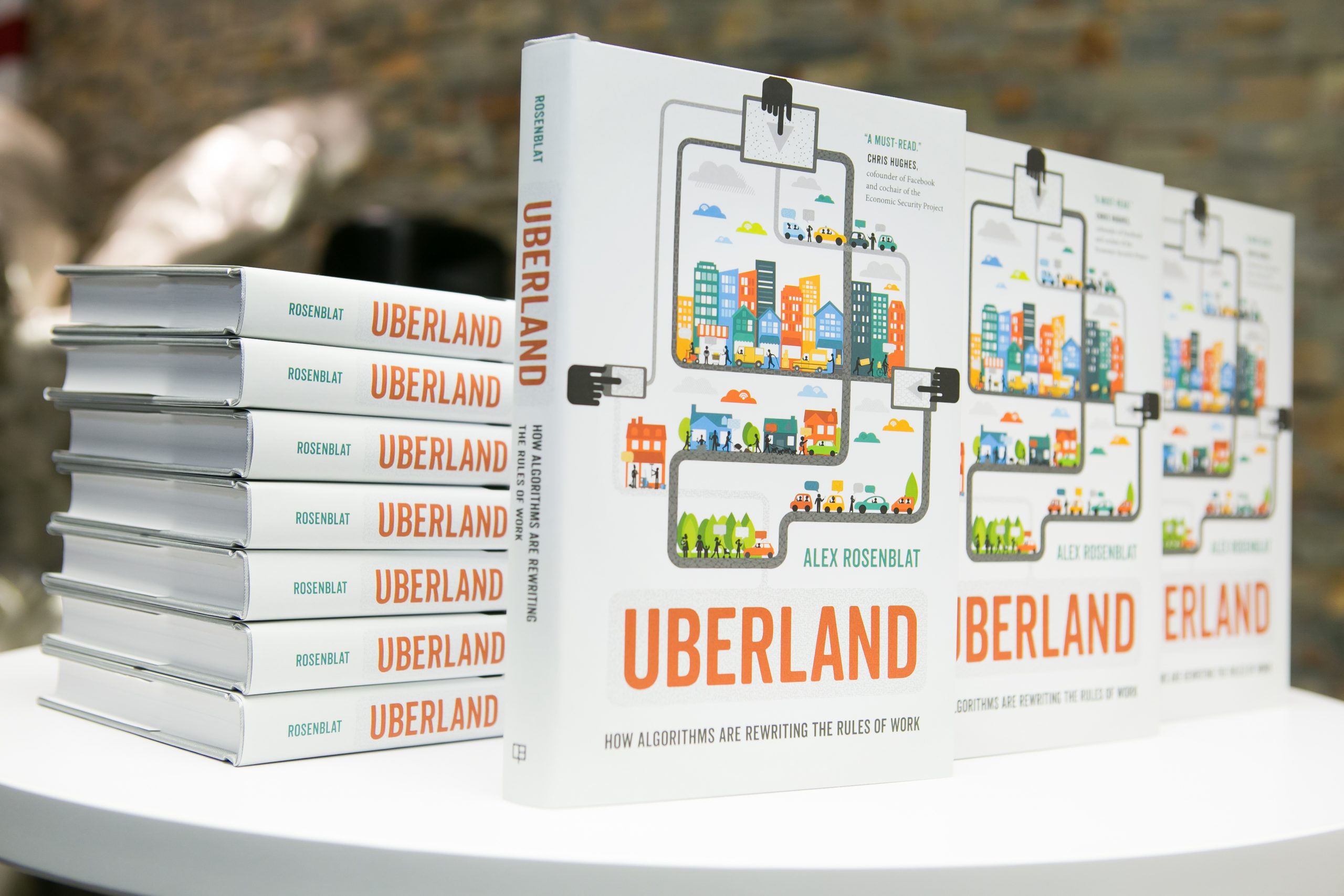On Thursday January 10, 2019, Peerage Capital and Miles S. Nadal were delighted to host Alex Rosenblat, Technology Ethnographer and author of Uberland: How Algorithms Are Rewriting the Rules of Work. A researcher at the Data & Society Research Institute, Rosenblat holds a master’s degree in sociology from Queen’s University and a Bachelor of Arts degree in history from McGill University. Her writing has appeared in media outlets such as the New York Times, the Harvard Business Review, The Atlantic, Slate, and Fast Company. Her research has received attention worldwide, and has been covered in the New York Times, the Wall Street Journal, MIT Technology Review, WIRED, New Scientist, and the Guardian. Among the scholarly and professional publications in which her prize-winning work has been published are the International Journal of Communication and the Columbia Law Review.
After being introduced by Trevor Maunder, President and CEO of Peerage Capital, Rosenblat delivered a spirited talk followed by an engaging Q & A about her recent publication, Uberland.

About Uberland
Silicon Valley technology is transforming the way we work, and Uber is leading the charge. The American startup promised to deliver entrepreneurship for the masses through its technology, but instead created a new template for employment using algorithms and internet platforms, giving way to a future where any of us could be managed by a faceless boss.
Based on Rosenblat’s firsthand experience of riding over 5,000 miles with Uber drivers, daily visits to online forums, and face-to-face discussions with senior Uber employees, Uberland reveals the complicated politics of popular technologies that are manipulating both workers and consumers. The neutral language of technology masks the powerful influence that algorithms have across the New Economy.

A Faceless Boss
Uber attracts new drivers using slick ads featuring well dressed, good looking men and headlines that promise the American Dream of being self-employed with annual earnings upwards of $90,000 USD. And yet, an Uber driver has no idea where a passenger will be going before accepting a ride. If it is a very short ride, they may actually lose money after factoring in time and gas, not to mention wear and tear on their vehicle. If a driver refuses a ride or stops the ride early due to an unruly or threatening passenger, they risk a drop in their rating as determined by Uber’s algorithm. Consequently, they could be kicked off the platform altogether. Rosenblat illustrates well the myriad of complicated implications of having what she deems a “faceless boss.”

Ghost Cars
Rosenblat first achieved international recognition for an article she published for Motherboard that reveals misleading representation of available Uber cars to a user. She discovered this in an Uber driver forum that she monitors daily as part of her research. A driver posted that when she opened the passenger app to see what the competition was like in her neighbourhood, Uber showed her several cars in close proximity available for pick up. Yet when she drew the blinds, her street was empty. Therefore, Uber is now known to populate the screen with ghost cars to give the passenger a sense of availability and encourage them to commit to ordering their ride through Uber versus a competitor. Before Rosenblat could blink she was receiving calls from CNN and Uber. Uber requested that she retract her findings. She didn’t. This is just one example from many that Rosenblat uncovered in her research highlighting Uber’s experimental practices that mislead and manipulate customers. When asked if a tip left through the Uber app actually makes it into the hands of the driver, Rosenblat says not necessarily and adds that it is better to tip in cash.

A Good Bad Job
Rosenblat’s talk gave way to an engaging Q & A where she revealed she remains “neutral” and is not for or against Uber exactly, explaining that she thinks that despite the complicated labour implications she highlights in her book, she considers it a “good bad job” for drivers. The barriers to entry are few and it is a far better alternative to many other jobs. From a passenger perspective, she describes it as simply “a really convenient form of transportation.” Indicating that despite her findings, she will continue to use the app and does not discourage the public from doing the same. But she cautions that regulators have a role to play in safeguarding the interests of consumers and workers from algorithmic manipulation.










